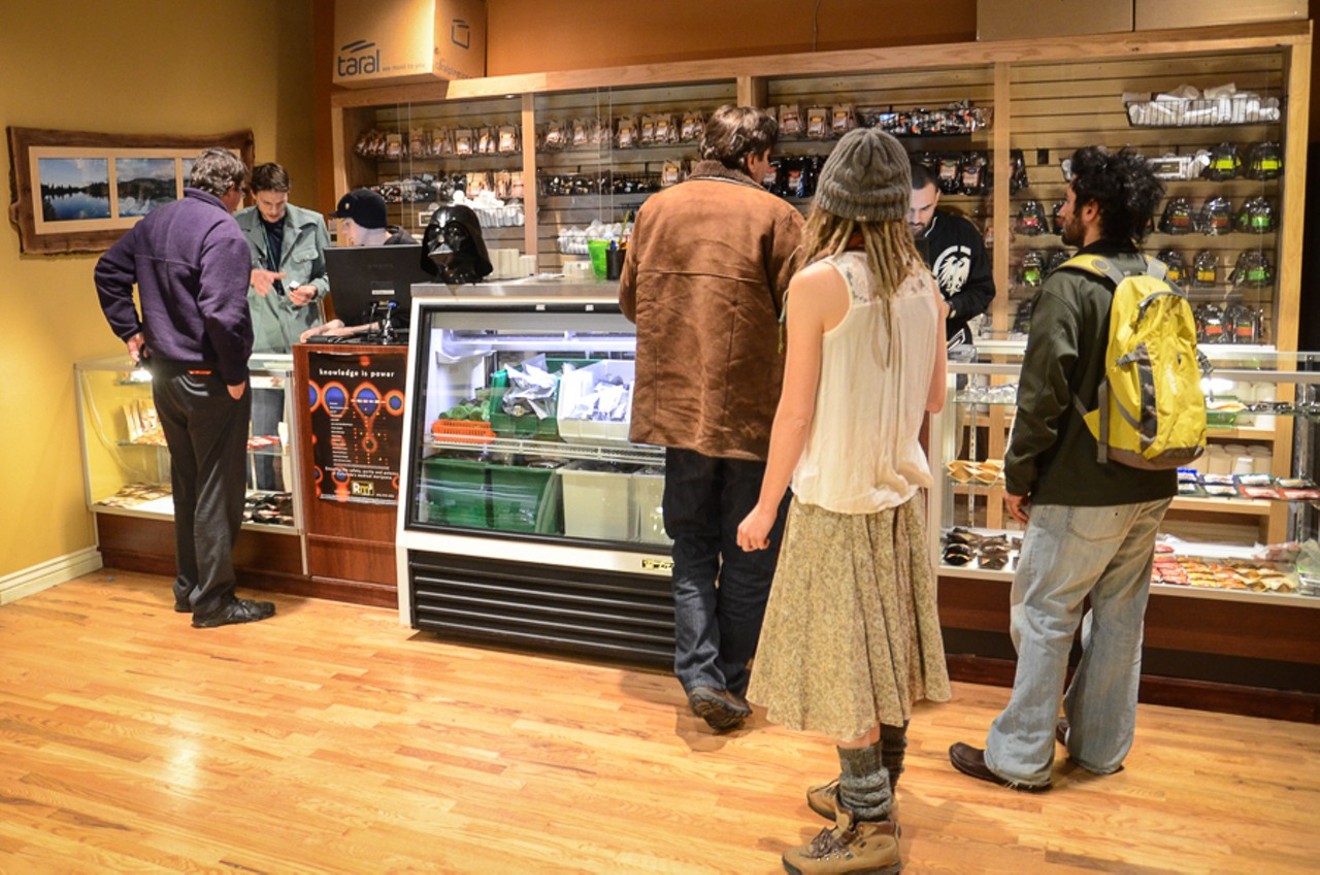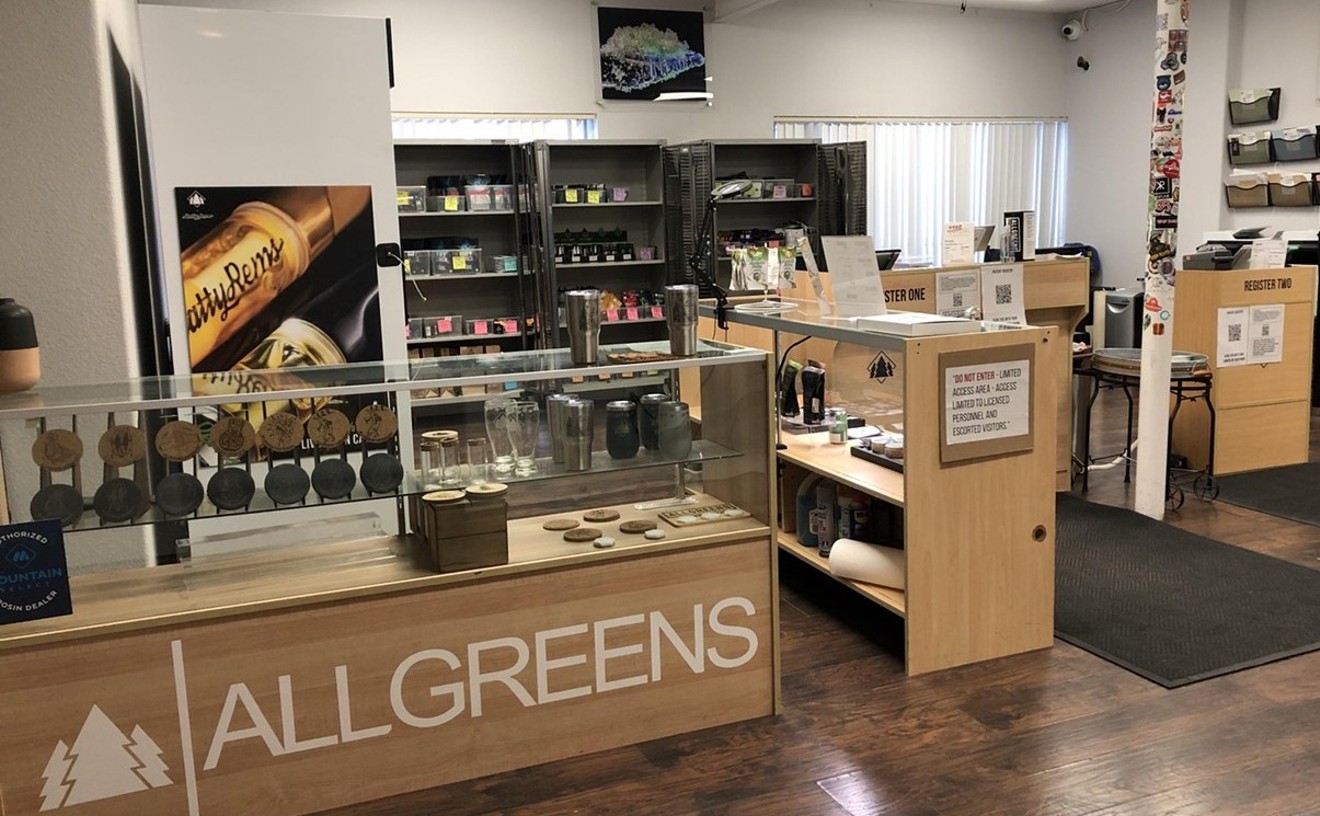The impact of the coronavirus pandemic on Colorado's economy is still up in the air as businesses reopen across the state, but the legal marijuana industry could provide some relief.
State projections have marijuana tax revenue dropping slightly over the next year because of the response to COVID-19, but new business licenses could help create jobs, according to pot industry representatives, while towns previously uninterested in the plant may find themselves a bit more amenable to the money it brings.
Here are five ways marijuana could help fire up the Colorado economy.
Marijuana Delivery
Recreational marijuana delivery won't be legal until 2021, but delivery of medical marijuana is allowed right now. Unfortunately, it's not widespread. Not only would more MMJ delivery options give the nearly 82,000 registered patients better access to their medication, but they could provide jobs for new delivery drivers. Local governments would receive revenue without allowing dispensaries to open within their borders by getting a cut from the sales tax. Currently, there is a $1 surcharge on all deliveries that funds law enforcement efforts related to marijuana delivery, but localities are allowed to add more fees if they approve the service.
So far, just two towns, Boulder and Superior, have allowed delivery. Denver has created a work group to evaluate delivery service before Denver City Council makes the ultimate decision, and that isn't expected to happen for at least several months.
Pot Hospitality
Even optimistic outlooks don't have the few marijuana hospitality establishments in Colorado reopening until bars can, but the opportunities created by a new state law allowing social pot use could muster up licensing revenue for cities and maybe help some struggling commercial landlords in the meantime. Licensed, marijuana-friendly establishments have another potential asset: A new state law that created the licenses also allows for indoor smoking. However, the law bans alcohol sales at such businesses, which limits the opportunities, and local governments must opt in first.
Marijuana hospitality also goes hand in hand with tourism, a heavy factor in Colorado's pandemic-related budget woes. According to Colorado Tourism Office research, 6.2 percent of visitors to Colorado said that legal marijuana was one of the main reasons for traveling here — yet those tourists have few places where they can consume.
Easier Employment Requirements
New laws easing the requirements for marijuana industry employees should provide better access to jobs. Past state regulations banned anyone from working in the pot industry if they'd been convicted of a felony within the past five years, or of a drug felony within the past ten years. A law passed in 2019 removed the special drug-felon ban, and cut the five-year ban for felons to three years.
Earlier this year, the Colorado Legislature passed a bill now awaiting Governor Jared Polis's signature that would end residency requirements for marijuana employees. The proposed law would allow people living in other states to apply for a license to work in Colorado, but proponents say that rule is intended for marijuana businesses that operate in multiple states. However, because twelve months are necessary to establish residency in Colorado, the bill also gives new Coloradans one more chance at a job.
Fewer Prude Towns
More Colorado towns — somewhere around 70 percent, last time we checked — still ban commercial marijuana than allow it. This hasn't stopped Colorado from collecting over $1.31 billion in marijuana tax revenue since 2014, however. If jobs and consumer spending don't return to small towns or border communities soon, marijuana might not smell so bad anymore.
Hemp and CBD's Time to Shine
Although most of the retail stores selling hemp and hemp-derived CBD products were closed during Colorado's stay-at-home orders, the companies we've talked to haven't seen a big dip in revenues, because most of their sales were already conducted online. As one the country's leading states in acres devoted to hemp farming, with a growing number of CBD business headquarters, Colorado could get lots of help from hemp.
[
{
"name": "Air - MediumRectangle - Inline Content - Mobile Display Size",
"component": "12017618",
"insertPoint": "2",
"requiredCountToDisplay": "2"
},{
"name": "Editor Picks",
"component": "17242653",
"insertPoint": "4",
"requiredCountToDisplay": "1"
},{
"name": "Inline Links",
"component": "18838239",
"insertPoint": "8th",
"startingPoint": 8,
"requiredCountToDisplay": "7",
"maxInsertions": 25
},{
"name": "Air - MediumRectangle - Combo - Inline Content",
"component": "17261320",
"insertPoint": "8th",
"startingPoint": 8,
"requiredCountToDisplay": "7",
"maxInsertions": 25
},{
"name": "Inline Links",
"component": "18838239",
"insertPoint": "8th",
"startingPoint": 12,
"requiredCountToDisplay": "11",
"maxInsertions": 25
},{
"name": "Air - Leaderboard Tower - Combo - Inline Content",
"component": "17261321",
"insertPoint": "8th",
"startingPoint": 12,
"requiredCountToDisplay": "11",
"maxInsertions": 25
}
]












